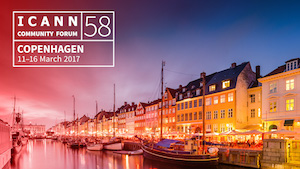Joint meeting ICANN Board and Non-Commercial Stakeholders Group
23 Mar 2017 01:00h
Event report
The Non-Commercial Stakeholder Group (NCSG) started the session by demanding a response from the ICANN Board on how ICANN’s complaint process can be modified. The NSCG feel that the current process should be made more accountable, allow enough time for registrants to respond to allegations, and create a safer environment for registrants who might be victims of harassment and abuse.
Mr Jamie Hedlund, SVP, Contractual Compliance & Consumer Safeguards at ICANN replied that within contractual compliance, the complaints of abuse are handled very seriously. He added that these complaints are addressed as soon as they are presented to them. He further mentioned that the staff work closely with anyone who feels like there has been abuse against them, be it the registrants, registrars, or registries, and encouraged anyone who feels like they are the victims of abuse to bring those issues forward.
The Board replied that ICANN can only act within its mission and is not actually the place for solving issues on content and copyright. They added that the confusion over what ICANN’s role is adds friction, and encouraged communication between the concerned parties to solve the issues outside of ICANN to reach a solution.
The NSCG raised the issue of increasing transparency within ICANN to enhance community participation and understanding. The Board replied that transparency is a major priority and added that the Board’s working group on trust, set up in Helsinki, is aimed at increasing the trust of the community. They added that they are exploring methods of engaging with the community, such as by explaining what that Board does to the community, and by reaching out to the community within their own ecosystem in order to address and explain the decision-making process.
The NCSG also raised the issue of Public Interest Commitments (PIC) in the new gTLD registry agreement, which they see as contradicting the consensus processes. Furthermore, they added that this overrides the many hours of volunteer effort, time, research drafting, editing and reviewing spent creating the agreement, and how this should be prevented from happening again, since it harms the multistakeholder model. The Board assured them that these valid concerns will be addressed based on the specifics of the issue.
On the issue of capacity building, the Board added that they are looking at ways to leverage both the Fellowship and the NextGen@ICANN programmes to support community building. They indicated that although this does not solve the immediate problems, efforts are in place to address the long term concerns regarding community development.
Related topics
Related event

